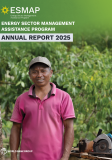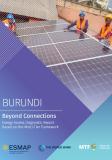Publications
Closing the Loop on Energy Access in Africa
The Energy Storage Partnership, the Global Battery Alliance, World Economic Forum, and the Faraday Institution collaborated on a new report: Closing the Loop on Energy Access Report.
The report looks at the role of batteries in supporting sub-Saharan Africa’s energy access goals. Key report findings and recommendations include:
-
- Batteries are crucial to supporting Africa’s energy access goals, particularly in sub-Saharan Africa.
- Improvements in energy access over the next decade will drive an estimated seven- to fourteen-fold increase in stationary battery capacity in the region, to 83 GWh.
- Meeting the growing battery demand with lower economic, environmental and human costs will require high-quality recycling and repurposing, currently non-existent across most African countries.
- High-quality recycling and repurposing also create additional benefits, through employment and upskilling opportunities.
The Energy Storage Partnership is a global partnership convened by ESMAP/World Bank to foster international cooperation to adapt and develop energy storage solutions for developing countries.
Citation
Global Battery Alliance, World Economic Forum, the Energy Storage Partnership, the Faraday Institution, Vivid Economics and Öko-Institut e.V.
Users also downloaded
January 1 2026

December 18 2025


